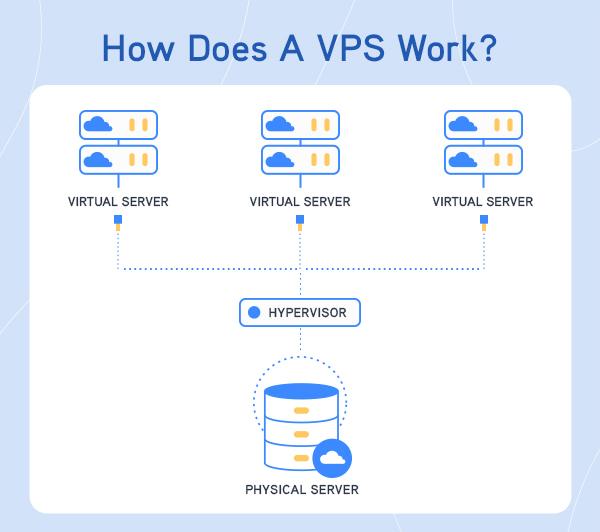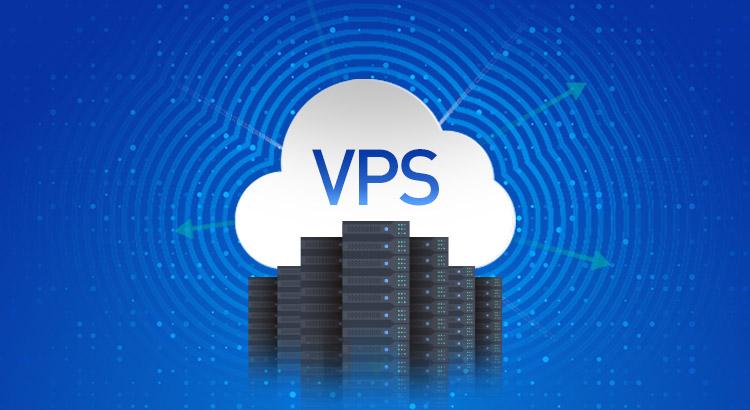
Are you ready to take your online presence to the next level without breaking the bank? If you’ve been searching for the best free VPS hosting providers in 2024, you’re in the right place! Whether you’re a budding entrepreneur, a developer testing out new ideas, or simply someone who wants more control over their web projects, virtual private servers (VPS) can be a game-changer. They offer the flexibility, performance, and security that shared hosting simply can’t match—without the hefty price tag.
In this article, we’ll walk you through the 10 best free VPS hosting providers available this year, whether you’re looking for a trial period to test the waters or a forever-free option to keep your project afloat. Get ready to discover reliable, feature-rich hosting solutions that won’t cost you a dime, and learn how you can harness the power of VPS to propel your online endeavors. Let’s dive in and find the perfect fit for your needs!
Choosing the Right Free VPS Hosting Provider for Your Needs
When it comes to selecting a free VPS hosting provider, the options can seem overwhelming. However, narrowing down your choices is essential for ensuring that you get the best value without compromising on performance. Here are some key factors to consider:
- Performance: Look for providers that offer sufficient CPU, RAM, and bandwidth. Even free options should provide a decent level of performance to handle your website’s traffic.
- Support: While free plans often come with limited support, it’s vital to check what assistance is available. Reliable customer service can make a significant difference in troubleshooting and resolving issues.
- User Experience: An intuitive dashboard can simplify management tasks. Choose a provider that offers a user-friendly interface, making it easier to navigate your VPS environment.
- Scalability: As your project grows, you may need to upgrade your resources. Opt for providers that offer flexible plans, allowing for seamless migration from free to paid services.
- Security Features: Ensure that the VPS provider has robust security measures in place, even for free accounts. Look for features like firewalls, DDoS protection, and regular backups.
Another important consideration is the geographical location of the server. Hosting closer to your target audience can help reduce latency and improve load times. Many free VPS providers offer data centers in multiple locations, so you can choose one that best serves your needs.
Here’s a simple comparison table to help visualize some of the best free VPS hosting options available:
| Provider | Free Trial Duration | Key Features | Support |
|---|---|---|---|
| Provider A | 30 Days | 2 GB RAM, SSD Storage | Email Support |
| Provider B | Forever | 1 CPU, 1 GB RAM | Community Forum |
| Provider C | 14 Days | Multi-Location Servers | 24/7 Live Chat |
Trial periods can also be a deciding factor. Some providers offer free trials with no credit card required, while others may ask for payment information. Choose one that aligns with your comfort level. Keep in mind that a free VPS is an excellent way to test the waters, but it shouldn’t become a long-term solution if your needs outgrow it.
Ultimately, the right free VPS hosting provider will depend on your specific requirements, whether you’re a developer looking for testing environments or a small business in need of reliable web hosting. Take your time, do thorough research, and don’t hesitate to try a few different providers to see which one feels right for you.

Why Free VPS Hosting is a Game Changer for Startups
Moreover, the community support surrounding many free VPS providers is often robust. Startups can benefit from forums, tutorials, and user-generated content that can guide them through common issues and challenges. This wealth of information can be invaluable for new entrepreneurs who may not have extensive technical knowledge.
Ultimately, free VPS hosting is not just a cost-saving strategy; it’s a strategic move for startups looking to carve their niche in a competitive market. By taking advantage of these hosting solutions, entrepreneurs can prioritize innovation, maintain operational efficiency, and build a solid foundation for future growth.

Exploring the Key Features of Top Free VPS Providers
When diving into the world of free VPS hosting, several key features set the best providers apart from the rest. Understanding these can help you make an informed decision about which VPS provider suits your needs best.
One of the prominent features to look for is resource allocation. Free VPS hosting should offer generous CPU, RAM, and disk space to ensure that you can run your applications smoothly without frequent interruptions. Look for providers that specify:
- CPU Cores: Aim for at least 1 dedicated core to handle basic tasks.
- RAM: A minimum of 512MB is ideal for lightweight applications.
- Disk Space: SSD storage is a plus for faster data retrieval and overall performance.
Another critical aspect is the scalability of the service. A good VPS provider should allow for easy upgrades to paid plans as your needs grow. This flexibility is essential for businesses planning to expand or run more demanding applications. Look for options that make scaling simple, like:
- Seamless plan transitions with no downtime.
- Ability to add resources with just a few clicks.
Furthermore, customer support significantly enhances your experience with free VPS hosting. Although you might not expect 24/7 support from a free service, having access to a responsive support team can make a big difference when issues arise. The best providers offer:
- Live chat or ticketing systems for prompt assistance.
- Extensive knowledge bases and tutorials to help troubleshoot common problems.
Security features should also be a top priority. Ensure that the VPS provider implements robust measures to keep your data safe. Essential security features include:
- Firewall Protection: To shield your server from unauthorized access.
- Regular Backups: To prevent data loss in case of hardware failures.
- SSL Certificates: For secure data transmission.
Lastly, consider the ease of use of the control panel. A user-friendly interface can greatly simplify server management, especially for those new to VPS hosting. Look for providers that offer:
- Intuitive dashboards that display resource usage at a glance.
- One-click installations for popular applications like WordPress or Joomla.
when exploring free VPS providers, focus on resource allocation, scalability, customer support, security, and ease of use. Each feature contributes to a seamless hosting experience, allowing you to focus on what truly matters: building and growing your projects.
Performance Matters: How to Assess VPS Server Speed
When diving into the world of VPS hosting, one of the most critical factors to consider is speed. A fast VPS can significantly enhance the performance of your applications and websites, leading to better user experiences and improved SEO rankings. So, how can you accurately assess the speed of a VPS server? Here are some essential aspects to consider.
1. Run Speed Tests: The most straightforward way to gauge the speed of a VPS is to run speed tests. Utilize tools like:
- Pingdom: Excellent for measuring load times from various locations.
- GTmetrix: Offers in-depth insights into your server’s performance.
- WebPageTest: Provides detailed waterfall charts to identify bottlenecks.
2. Monitor Uptime: Speed is not just about how fast a server responds; uptime plays a crucial role too. Use uptime monitoring tools such as:
- UptimeRobot: Tracks server availability every 5 minutes.
- Site24x7: Monitors your site’s performance and alerts you to downtime.
3. Analyze Resource Allocation: Understanding how resources are allocated on your VPS is essential. Assess:
- CPU and RAM Usage: High usage may indicate that your server is overloaded.
- Disk I/O Performance: SSDs generally offer better speed compared to traditional HDDs.
4. Test Different Locations: Your VPS might perform differently depending on the geographical location of the users. Use tools that allow you to test from various global locations to get a comprehensive picture of your server’s speed.
5. Evaluate Network Latency: Measuring latency is key in understanding the response time. A lower latency often correlates with a faster VPS. Tools like Traceroute can help pinpoint any network issues that may be slowing down your server.
| VPS Provider | Speed Test Tool | Uptime Monitoring |
|---|---|---|
| Provider A | Pingdom | UptimeRobot |
| Provider B | GTmetrix | Site24x7 |
| Provider C | WebPageTest | UptimeRobot |
By taking these factors into account, you can effectively assess the speed of any VPS server you consider. Remember, a fast VPS not only boosts your site’s performance but also enhances overall user satisfaction. Investing time to evaluate these aspects will pay off in the long run.
User Experience: The Importance of Customer Support
When exploring free VPS hosting options, one aspect often overlooked is the quality of customer support. In the competitive landscape of web hosting, effective customer support can significantly enhance the overall user experience, making it a critical factor in your decision-making process. Whether you’re a seasoned developer or a novice starting your online journey, having access to responsive and knowledgeable support can save you time, reduce frustration, and help you overcome technical hurdles quickly.
Imagine you encounter an issue during a critical website launch. You need immediate assistance, but the support team is slow to respond or unavailable. This situation can lead to lost opportunities and damage your brand’s reputation. To avoid such scenarios, it’s crucial to choose a VPS provider that offers robust customer support. Look for hosting services that provide:
- 24/7 Availability: Ensure that support is accessible at all times to address urgent issues regardless of your time zone.
- Multiple Support Channels: Providers should offer various ways to reach support, such as live chat, email, and phone.
- Expertise and Knowledge: The support staff should be well-trained and capable of resolving issues efficiently.
Furthermore, the actual experiences of users can reveal a lot about the support quality of different VPS providers. Reading reviews and testimonials can give you insight into how responsive and helpful a provider’s support team is. High customer satisfaction ratings related to support can often indicate a reliable service. Here’s a simple comparison table showcasing some popular free VPS hosting providers and their customer support features:
| Provider | Support Availability | Support Channels | User Rating |
|---|---|---|---|
| Provider A | 24/7 | Live Chat, Email | 4.8/5 |
| Provider B | Weekdays only | Email, Phone | 4.0/5 |
| Provider C | 24/7 | Live Chat, Email, Phone | 4.5/5 |
Another important aspect to consider is the availability of self-service resources. Quality VPS providers often offer extensive documentation, tutorials, and a knowledge base. These resources can empower you to troubleshoot minor issues independently and learn more about managing your VPS effectively. The ability to find solutions quickly can enhance your overall experience and reduce reliance on direct support.
prioritizing customer support in your search for a free VPS hosting provider is not just about having help when things go wrong; it’s about ensuring a smooth and efficient user experience. Make sure to invest time in evaluating your options. The right provider with excellent support can turn a challenging situation into an opportunity for growth and innovation.

Security Features You Can’t Overlook in Free VPS Hosting
When choosing a free VPS hosting provider, security should be at the forefront of your decision-making process. With the rising number of cyber threats, it’s crucial to select a service that prioritizes the protection of your data and applications. Here are the essential security features to keep an eye out for:
- Firewall Protection: A robust firewall acts as a barrier between your VPS and potential threats from the internet. Ensure that your provider offers configurable firewall options to customize your security settings.
- Intrusion Detection Systems (IDS): This technology monitors your network for suspicious activities and potential security breaches. It’s a proactive measure that can help you identify threats before they become significant issues.
- Regular Backups: Data loss can be catastrophic. Check if the VPS hosting provider offers automated backups, allowing you to restore your files with ease in case of data corruption or loss.
- SSL Certificates: Secure Sockets Layer (SSL) certificates encrypt data transmitted between your server and users. Look for providers that include SSL certificates to enhance the security of your website.
- Two-Factor Authentication (2FA): Adding an extra layer of security by requiring a second form of verification can significantly reduce the risk of unauthorized access. Opt for providers that support 2FA for account access.
- Regular Security Updates: Cybersecurity is an ongoing battle. Your hosting provider should commit to regular software updates and security patches to protect against the latest vulnerabilities.
Furthermore, consider the geographical location of the data centers where your VPS will be hosted. Some regions have stricter data protection laws, which could provide an additional layer of security for your data. Understanding these regulations can give you peace of mind regarding your privacy and data security.
| Feature | Importance | Provider Examples |
|---|---|---|
| Firewall Protection | Blocks unauthorized access | Provider A, Provider B |
| Intrusion Detection | Monitors for threats | Provider C, Provider D |
| Regular Backups | Prevents data loss | Provider E, Provider F |
| SSL Certificates | Secures data transmission | Provider G, Provider H |
| Two-Factor Authentication | Enhances account security | Provider I, Provider J |
while free VPS hosting might seem like an attractive option, it’s essential to scrutinize the security features it offers. A compromised server can lead to lost revenue, damaged reputation, and costly recovery efforts. By prioritizing security, you not only protect your assets but also build trust with your users. Choose wisely, and don’t hesitate to dig deeper into the security protocols of each provider before making your final decision.

Scalability: Future-Proofing Your Projects with Free VPS
When it comes to planning your projects, scalability is a key factor that can significantly impact your success. Opting for a free VPS not only offers you a cost-effective solution but also ensures that your projects can grow seamlessly. The flexibility of a VPS allows you to upgrade your resources as your needs increase, providing a solid foundation for future developments.
Investing time in finding the right free VPS hosting provider is crucial. The ideal solution will offer:
- Resource Allocation: Most free VPS providers come with adjustable resources. This means when your website traffic spikes or your application demands more processing power, you can easily scale up without migrating to a different host.
- Customizability: With a VPS, you have the freedom to configure your environment according to your specific requirements, facilitating a tailored approach as you expand.
- Support for Multiple Projects: Many free VPS plans allow you to host multiple sites or applications, giving you the flexibility to diversify your online presence without incurring extra costs.
Moreover, leveraging a VPS allows you to experiment with new technologies and frameworks without the fear of overcommitting financially. You can test out different configurations and setups that are aligned with the future direction of your projects. The ability to roll back or adjust your environment as needed ensures that you’re always on the cutting edge.
Here’s a quick comparison of some top options for free VPS hosting that emphasize scalability:
| Provider | Free Tier Specs | Scalability Options |
|---|---|---|
| Provider A | 1 CPU, 1GB RAM, 20GB SSD | Easy upgrade to 2 CPU, 2GB RAM |
| Provider B | 2 CPU, 2GB RAM, 50GB SSD | Scalable up to 8 CPU, 16GB RAM |
| Provider C | 1 CPU, 512MB RAM, 10GB SSD | Upgrade options available for all specs |
By choosing a VPS that not only meets your current requirements but also supports future upgrades, you are effectively future-proofing your projects. This proactive approach allows you to allocate resources wisely and ensures that your hosting environment grows alongside your ambitions.
Don’t underestimate the importance of a robust support system either. Many free VPS providers offer community forums or limited technical support, which can be invaluable as you encounter new challenges. Engaging with a supportive community can provide you with insights and solutions that refine your projects further.
remember that the landscape of technology is constantly evolving. A solid free VPS hosting plan can become a crucial asset in your toolkit, enabling you to pivot and adapt to changes in your industry. Scalable solutions not only save you money but also provide the versatility required to keep pace with your project’s growth.

Top Contenders: A Closer Look at the Best Free VPS Options
When diving into the world of free VPS hosting, several names stand out for their exceptional offerings. Each provider has its unique strengths, ensuring that you can find the right fit for your specific needs. Here’s an overview of some of the top contenders in the free VPS hosting arena.
1. Amazon Web Services (AWS) Free Tier
AWS offers a robust free tier that allows users to explore their extensive cloud service capabilities. With the Free Tier, you get access to a micro instance for a full year, making it an excellent choice for developers looking to test applications or build prototypes.
- Limited Time Offer: 12 months free usage.
- Resources: 750 hours/month of a t2.micro instance.
- Additional Services: Access to various AWS services, including S3 and Lambda.
2. Google Cloud Platform (GCP) Free Tier
GCP is another powerhouse in the cloud computing domain, providing a free tier that includes a small VM instance. Ideal for developers and hobbyists, GCP’s offerings come with a generous credit system to explore additional services.
- Free Credits: $300 credit for new users.
- Resources: 1 f1-micro instance per month.
- Global Reach: Access to multiple data centers worldwide.
3. Oracle Cloud Free Tier
Oracle Cloud steps up with a unique offering that includes two always-free VMs. This is particularly appealing for startups and small businesses looking for a reliable platform without upfront costs.
- Always Free: Two instances of AMD-based VMs.
- User-Friendly: Simple interface and extensive documentation.
- Database Options: Supports Oracle databases free of charge.
4. Microsoft Azure Free Account
Microsoft Azure’s free account provides a diverse range of services along with a free VM. It’s a perfect option for developers who want to build and deploy applications seamlessly across various platforms.
- Duration: 12 months of free access to popular products.
- Resources: 750 hours/month of B1S VM.
- Developer Tools: Access to Azure DevOps and GitHub integration.
5. Vultr Free Trial
Vultr is renowned for its simplicity and performance. They offer a free trial that lets you experience their premium VPS hosting. With a user-friendly dashboard, it’s perfect for those new to VPS hosting.
- Trial Duration: $100 credit for 30 days.
- Global Locations: Data centers in 17 locations worldwide.
- Performance: High-speed SSD storage.
Quick Comparison Table
| Provider | Free Offer | Key Features |
|---|---|---|
| AWS | 12 months free | 750 hours/month t2.micro |
| GCP | $300 credits | 1 f1-micro instance |
| Oracle Cloud | Always Free | 2 VMs & Oracle DB |
| Azure | 12 months free | 750 hours/month B1S |
| Vultr | $100 credits | 30-day trial |
Each of these providers brings something unique to the table, making the choice of free VPS hosting both exciting and challenging. Consider your project requirements, potential growth, and technical support when deciding on the best platform to kick-start your journey.

Trial vs. Forever Free Plans: What You Need to Know
Choosing between trial and forever free plans can be a bit like navigating a minefield. Each option has its own set of advantages and limitations, and understanding these can save you from future headaches.
Trial plans are often designed to give you a taste of premium features without immediate costs. These plans typically span from a week to three months and provide full access to the hosting provider’s services. However, they come with certain conditions that you should keep in mind:
- Time-sensitive: Your trial period ends, and you might be left scrambling to find a suitable alternative if you haven’t made a decision.
- Limited Support: While you may have access to premium features, customer support may not be as robust during the trial period.
- Auto-renewal: Many trial plans require you to enter credit card information, and you could be charged if you forget to cancel before the trial ends.
On the other hand, forever free plans offer a long-term solution that can be particularly appealing for startups or personal projects. These plans come with their own unique set of characteristics:
- Consistency: You can rely on these services without the pressure of a ticking clock.
- Limited Resources: Often, forever free plans come with reduced server resources, so they are not ideal for high-traffic websites.
- Upgrade Options: Many providers offer seamless upgrades to paid plans, making scaling up easy if your project grows.
| Feature | Trial Plans | Forever Free Plans |
|---|---|---|
| Duration | Limited (1 week – 3 months) | Unlimited (as long as the service is available) |
| Cost | Free initially, then paid | Always free, with limitations |
| Resource Allocation | Full access during trial | Limited resources |
| Support | Standard support | Basic support |
Ultimately, the choice between trial and forever free plans comes down to your needs. If you’re looking to experiment and explore advanced features without the immediate commitment, a trial plan may be the way to go. However, if you’re focused on a long-term project and want to minimize costs, forever free plans offer a reliable alternative.
Make sure to read the fine print for both types of plans. Understanding the limitations of each can help you make an informed decision that aligns with your project goals. Whether you opt for a trial or a forever free plan, it’s all about finding the right balance that fits your specific requirements.

User Reviews: Real Experiences with Free VPS Hosting
When it comes to free VPS hosting, user experiences can vary widely. Here’s what some users have to say about their journeys with different providers:
Positive Experiences
Many users have praised the ease of setup offered by providers like InfinityFree. One user mentioned, “I was up and running in no time! The user interface was simple, and I appreciated the step-by-step guidance.” This ease of use is especially important for beginners who may feel overwhelmed when diving into VPS hosting.
Another user highlighted the performance of their free VPS from Vercel: “I was surprised at how fast my website loaded compared to other free hosting options. It’s perfect for small projects or personal blogs.” Performance is often a concern with free services, but Vercel seems to deliver where it counts.
Mixed Reviews
However, not all experiences are seamless. Some users have reported inconsistent uptime with providers like Hostinger. “I loved the features, but I faced some downtime that affected my project. It was frustrating to troubleshoot on my own,” one user recounted. This highlights the importance of reliable server performance, even in a free package.
Users have also raised questions about customer support with certain providers. One user noted, “I had a tough time getting assistance from the support team at Free VPS. I waited days for a reply.” While free services may not offer premium support, it’s essential to have at least some level of assistance during critical times.
Comparative Table of User Ratings
| Provider | Ease of Use | Performance | Customer Support | Overall Rating |
|---|---|---|---|---|
| InfinityFree | ⭐⭐⭐⭐⭐ | ⭐⭐⭐⭐ | ⭐⭐⭐⭐ | 4.5/5 |
| Vercel | ⭐⭐⭐⭐ | ⭐⭐⭐⭐⭐ | ⭐⭐⭐⭐ | 4.6/5 |
| Hostinger | ⭐⭐⭐⭐ | ⭐⭐⭐ | ⭐⭐ | 3.8/5 |
| Free VPS | ⭐⭐⭐⭐ | ⭐⭐⭐ | ⭐ | 3.2/5 |
Final Thoughts
while there are many positive reviews for free VPS hosting services, potential users should also be aware of the drawbacks. Users recommend doing thorough research and perhaps starting with short trials to find the best fit. As one user wisely stated, “You get what you pay for, but sometimes free can be a great place to start!”

Comparative Pricing: Understanding the Cost of Upgrades
When exploring the world of VPS hosting, it’s crucial to understand the differences in pricing, especially when considering upgrades. While many providers offer enticing free options, their premium plans can vary significantly in cost and features. Here’s what you need to look out for:
- Resource Allocation: Some providers may give you a taste of their services for free, but you’ll find that once you upgrade, the resource allocation can vary widely. Look for plans that offer a balanced ratio of CPU, RAM, and storage to ensure you’re getting value for your money.
- Scalability: A good VPS provider should allow you to scale your resources easily as your needs grow. Investigate how much it costs to upgrade—some providers might have hidden fees or complicated tier structures that can add up quickly.
- Support Options: Consider the level of customer support included in various pricing tiers. Higher-priced plans often come with enhanced support features like 24/7 live chat or dedicated account managers, which can be invaluable for businesses that require constant uptime.
Let’s take a closer look at the potential costs associated with upgrading from a free VPS hosting plan. Below is a table summarizing the potential upgrade costs from several popular providers:
| Provider | Free Plan Duration | Basic Paid Plan | Premium Plan |
|---|---|---|---|
| Provider A | 30 Days | $5/month | $15/month |
| Provider B | Forever | $10/month | $25/month |
| Provider C | 60 Days | $3/month | $20/month |
While the initial allure of free VPS hosting is strong, it’s the upgrade options that can make or break your experience. Pay careful attention to:
- Contract Length: Some providers will lock you into a long-term contract, which can be a risk if your needs change.
- Fees for Additional Resources: Be wary of being charged extra for features that may seem standard elsewhere, such as backups or security enhancements.
- Discounts for Longer Commitments: Many providers offer significant discounts if you opt for annual billing over monthly. Factor this into your budget if you plan to stay with a provider long-term.
understanding the cost of upgrades is essential for making an informed decision. By carefully comparing providers and their pricing structures, you’ll not only maximize your initial investment but also ensure your hosting solution remains adaptable and cost-effective as your needs evolve.

Setting Up Your Free VPS: A Step-by-Step Guide
Getting started with a Virtual Private Server (VPS) can seem daunting, but with the right approach, you can have your server up and running in no time. Here’s a straightforward guide to help you set up your free VPS efficiently.
1. Choose Your VPS Provider
Before diving in, the first step is to select a VPS provider from the list of top free options available in 2024. Look for one that meets your needs based on the following:
- Resources: Check the CPU, RAM, and storage space offered.
- Trial Length: Determine how long the free trial lasts, or if they offer a permanent free tier.
- Support: Consider the level of customer support provided.
2. Sign Up for an Account
Once you’ve chosen a provider, head over to their website and create an account. This typically involves:
- Entering your email address and creating a password.
- Verifying your email to activate your account.
- Providing any necessary information for identity verification.
3. Select Your Server Configuration
After signing up, navigate to the VPS section and begin configuring your server. You’ll want to pay attention to:
- Operating System: Choose between options like Linux or Windows based on your project requirements.
- Data Center Location: Select a data center that is geographically close to your target audience for optimal performance.
- Server Size: Pick a configuration that balances price and performance. Most providers offer preset configurations to simplify this process.
4. Set Up Your Server
Once your configuration is complete, proceed to launch your server. This step usually involves:
- Confirming your selections and clicking the launch button.
- Waiting a few minutes for the server to be provisioned.
- Accessing your server via SSH using the credentials provided by your VPS provider.
5. Secure Your VPS
Security should be a top priority for any server setup. Implement these essential security measures:
- Change Default Passwords: Always change the default passwords to something strong and unique.
- Configure a Firewall: Set up a firewall to control incoming and outgoing traffic.
- Regular Updates: Keep your operating system and software updated to protect against vulnerabilities.
6. Install Software and Applications
With your server secured, it’s time to install the necessary software. Depending on your needs, this could include:
- Web servers (Apache, Nginx)
- Database management systems (MySQL, PostgreSQL)
- Application frameworks (Node.js, Django)
Each step will bring you closer to having a fully operational VPS tailored to your needs. It’s exciting to think about the possibilities with your new server!
Maximizing Your Free VPS Experience with Essential Tools
To truly enhance your experience with a free VPS, it’s essential to equip yourself with the right tools. These tools not only help you manage your server more efficiently but also enable you to maximize the potential of the resources at your disposal. Here are some must-have tools for every VPS user:
- Control Panels: A user-friendly control panel can make a world of difference. Consider options like cPanel or Webmin, which simplify the management of your server and allow for easy installation of applications.
- SSH Clients: Secure Shell (SSH) clients like PuTTY or Termius are indispensable for accessing your VPS securely. They provide a command-line interface where you can execute commands and manage your server effectively.
- Monitoring Tools: Keeping tabs on your server’s performance is crucial. Tools like Nagios or Zabbix provide real-time monitoring and alerts, ensuring you’re always aware of your server’s health.
- Backup Solutions: Regular backups safeguard your data. Use tools like rsync or Duplicati to automate your backup processes and ensure your data is secure, even during unexpected failures.
- Web Server Software: Choosing the right web server software can enhance your site’s performance. Options like Apache or Nginx are popular for their flexibility and robust support for various applications.
- Database Management: If you plan to host applications, having a powerful database management tool is essential. MySQL or PostgreSQL are excellent choices for managing data efficiently.
Integrating these tools into your workflow can streamline your processes significantly. For instance, pairing a control panel with a robust monitoring tool can offer a comprehensive overview of your server performance while simplifying management tasks. Furthermore, automating backups ensures you can restore your system quickly without manual intervention.
The choice of tools may depend on your specific use case. For example, if you’re running a small blog or website, a simple cPanel with basic monitoring can suffice. However, if you’re venturing into more complex applications or e-commerce, investing time in learning tools like Docker for container management or Kubernetes for orchestration can yield substantial benefits in the long run.
| Tool | Purpose | Recommendation |
|---|---|---|
| cPanel | Web Hosting Management | For ease of use |
| PuTTY | SSH Access | For secure connections |
| Nagios | Performance Monitoring | For real-time insights |
| rsync | Backup Automation | For file synchronization |
your free VPS can be a powerful tool in your digital arsenal, provided you utilize the right tools to manage and enhance it. By investing some time in selecting and setting up these essential tools, you’ll not only streamline your workflow but also ensure your VPS operates at its highest potential, giving you the confidence to explore and expand your projects without fear of limitations.
Final Thoughts: Making the Best Choice for Your Free VPS Hosting
Choosing the right free VPS hosting provider can feel overwhelming, especially with so many options available in 2024. However, making a well-informed decision is crucial for ensuring your online presence runs smoothly. It’s essential to assess your specific needs, such as website performance, storage requirements, and customer support. This way, you can select a provider that aligns with your goals.
Start by considering the key features you require. Here are some important aspects to evaluate:
- Resource Allocation: Look for a provider that offers adequate CPU, RAM, and disk space to accommodate your applications.
- Uptime Guarantee: A reliable uptime guarantee (ideally 99.9% or higher) is essential for keeping your website accessible.
- Support Options: Check if they provide 24/7 customer support through various channels like chat, email, or phone.
- User-Friendly Interface: A simple and intuitive dashboard can significantly enhance your experience managing the VPS.
Next, don’t overlook the importance of scalability. As your project grows, you may need additional resources. Choose a provider that allows for easy upgrades without excessive fees or complicated processes. This flexibility will save you time and hassle down the road.
Another aspect to consider is the community and resources available for each provider. A strong user community can be invaluable for troubleshooting and tips. Look for forums, tutorials, and documentation that support users. This will not only help you solve issues but also enhance your learning experience.
When evaluating free VPS hosting, keep an eye on the limitations that may come with a free plan. Many providers impose restrictions on bandwidth, storage, or even CPU usage which can affect your site’s performance. Make sure you understand these limits to avoid unpleasant surprises later on.
don’t forget to read user reviews and testimonials. Real experiences from other users can provide insights into the reliability and performance of the VPS hosting provider. Look for feedback on performance stability, customer service responsiveness, and any hidden fees that may apply after the trial period.
With the right approach, you can find a free VPS hosting provider that meets your needs and allows you to launch your projects confidently. Take your time to research, compare options, and make an informed decision that will support your online aspirations.
Frequently Asked Questions (FAQ)
Q&A: 10 Best Free VPS Hosting Providers 2024 (Trial & Forever)
Q1: What is VPS hosting, and why should I consider it for my website?
A1: Great question! VPS, or Virtual Private Server, hosting offers you a dedicated space on a server, giving you more control and resources than shared hosting. It’s like having your own mini-server without the hefty price tag. If you’re looking for better performance, enhanced security, and the ability to customize your environment, VPS hosting is definitely worth considering!
Q2: Are there really free VPS hosting options available?
A2: Absolutely! While many VPS providers charge, there are several that offer free plans—either through trials or forever-free options. These can be perfect for developers, startups, or anyone wanting to test the waters without financial commitment. Just remember, free options may come with some limitations!
Q3: How do I choose the right free VPS provider for my needs?
A3: When selecting a free VPS provider, consider factors like resource allocation (CPU, RAM, bandwidth), ease of use, customer support, and any potential limitations on your usage. Think about what you need the VPS for—whether it’s hosting a website, running applications, or learning—and choose accordingly!
Q4: What are some of the best free VPS hosting providers for 2024?
A4: You’re in luck! Here’s a quick rundown of some top contenders:
- Oracle Cloud Free Tier - Offers an always-free option with great resources.
- Amazon Lightsail – Great for a free trial and offers scalable resources.
- Google Cloud Platform - 12-month free trial with credits to explore.
- Microsoft Azure – Free tier available and a generous trial period.
- Vultr - Offers a $100 credit for 30 days.
- DigitalOcean – New users can take advantage of a $100 credit over 60 days.
- Linode – Great $100 credit for 60 days.
- Heroku – Ideal for app hosting with a free tier.
- FreeVPS – A community-driven provider with free plans.
- InfinityFree – Offers free hosting with no time limits.
Q5: What should I be aware of when using free VPS hosting services?
A5: It’s essential to keep a few things in mind:
- Limited Resources: Free plans often come with restricted CPU, RAM, and storage.
- Support: Customer support may be limited compared to paid services.
- Performance: You might experience slower speeds or less reliability than paid options.
- Upgrades: Check if you can upgrade easily if your needs grow!
Q6: Can I really host a production website on a free VPS?
A6: While it’s possible, it depends on your site’s requirements. If you’re running a small, low-traffic site or testing out a project, a free VPS can work fine. However, if you expect significant traffic or need high availability, consider investing in a paid plan for better performance and support.
Q7: Is there a catch to these free VPS offerings?
A7: There can be! Some providers may limit features, impose data caps, or require credit card details to start a free trial. Always read the terms and conditions before signing up. Look for reviews and user experiences to ensure you choose a reliable service.
Q8: How do I get started with a free VPS provider?
A8: Getting started is usually just a few clicks away! Sign up on the provider’s website, follow their instructions to create an account, and set up your VPS. Most platforms offer intuitive interfaces and guides to help you along the way, so you’ll be up and running in no time!
Q9: Are there any risks involved with using free VPS services?
A9: Yes, there are some risks, such as potential downtime, limited customer support, or data security concerns. Make sure you do your research and choose a reputable provider. Always back up your data and be prepared for the possibility that your free plan could be discontinued.
Q10: Can I transition to a paid VPS hosting service later?
A10: Absolutely! Most providers make it easy to transition from a free to a paid plan. This flexibility allows you to scale your resources as your business or website grows, giving you peace of mind that you won’t outgrow your hosting solution.
Final Thoughts: Exploring free VPS hosting options can be a fantastic way to dip your toes into the world of virtual servers. If you choose wisely and keep your needs in mind, you might just discover the perfect solution for your projects in 2024!
To Wrap It Up
As we wrap up our exploration of the 10 best free VPS hosting providers for 2024, it’s clear that you don’t have to break the bank to harness the power of virtual private servers. Whether you’re a budding entrepreneur, a developer testing new ideas, or simply someone looking to experiment without the financial commitment, these providers offer an excellent blend of reliability and performance — all for free!
Not only do these platforms give you the opportunity to test your projects in a secure environment, but they also open the door to discovering what works best for your needs without the pressure of a long-term financial commitment. Just remember, while free trials and plans are fantastic, don’t forget to consider your future needs. As your projects grow, you might want to transition to a paid plan for even more resources and support.
So, dive in, explore your options, and take full advantage of what these hosting providers have to offer. With a little bit of research and planning, you can find the perfect VPS solution that fits your budget and your ambitions. Happy hosting!






